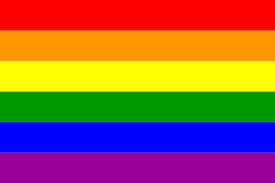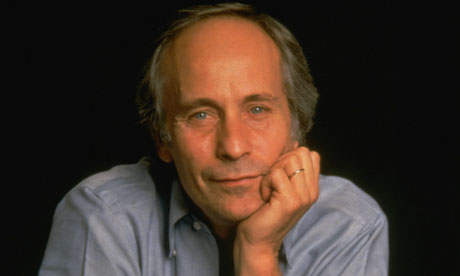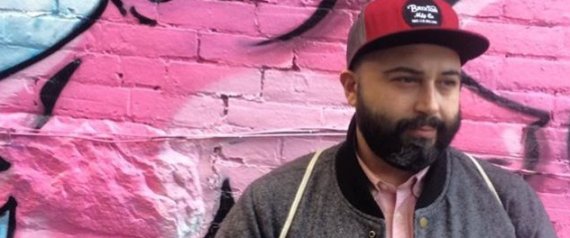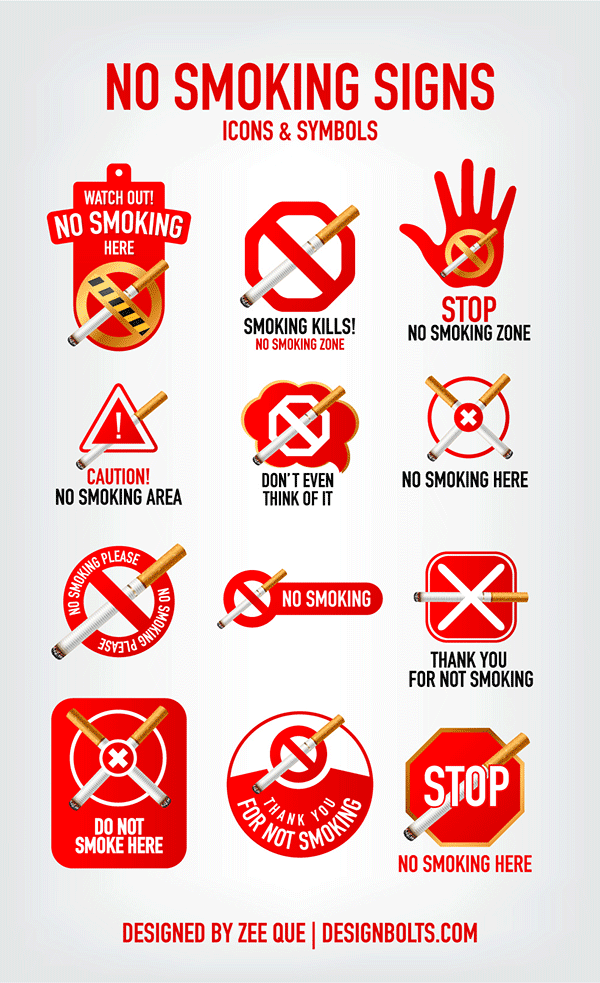Em 28 de junho, é celebrado o Dia Internacional do Orgulho LGBTI (lésbicas, gays, bissexuais, travestis, transexuais e pessoas intersex). A data marca um episódio ocorrido em 1969, quando várias pessoas reagiram a séries de batidas policiais realizadas no bar Stonewall Inn, em Nova York. A reação gerou perseguição da polícia entre o público LGBTI e levou à criação, no ano seguinte, da primeira parada do orgulho gay.



Trata-se de um blog voltado para a promoção da saúde de gays, lésbicas, bissexuais, transexuais, 'questioning' e interssexo. Por uma Diversidade na Comunidade, Por uma Diversidade Inclusiva na Sociedade, Por Justiça Social.
segunda-feira, 27 de junho de 2016
sábado, 25 de junho de 2016
DIA 26 DE JUNHO: DIA INTERNACIONAL DE COMBATE ÀS DROGAS. VIVER DEPENDENTE É UMA DROGA.

O uso de drogas é um mal social em todo mundo. Segundo dados do Relatório Mundial sobre Drogas da ONU, cerca de 5% da população mundial entre 15 e 64 anos, o que corresponde a uma média de 243 milhões de pessoas, usa drogas ilícitas.
O relatório aponta também a existência de uma média de 27 milhões de usuários de drogas problemáticos - aqueles que consomem drogas regularmente ou que apresentam distúrbios ou dependência. O número corresponde a 0,6% da população adulta mundial, ou seja, cerca de uma a cada 200 pessoas.

sexta-feira, 24 de junho de 2016
segunda-feira, 20 de junho de 2016
"QUEM JULGA AS PESSOAS NÃO TEM TEMPO PARA AMÁ-LAS." Madre Teresa de Calcutá
Um pequeno grupo da Igreja Batista Westboro (WBC, na sigla em inglês), criado em 1955 e baseado no Estado do Kansas, esteve no funeral de Christopher Leinonen, vítima em Orlando, no dia 18 de junho de 2016. A organização homofóbica tem apenas cerca de 40 membros, mas é bem conhecida nos Estados Unidos por seu discurso de ódio e pelos protestos em funerais.
O endereço de seu site oficial na internet é uma mensagem contra gays: "Godhatesfags.com" (Deusodeiabichas.com).
O WBC não é afiliado oficialmente a nenhuma denominação batista e já teve suas ações condenadas pela Baptist World Alliance e pela Southern Baptist Convention, duas das maiores denominações batistas.
Além de protestos contra o público LGBT, a organização realiza atos em funerais de celebridades e eventos públicos, tendo também como alvo judeus, católicos e muçulmanos.
Carregam mensagens do tipo "Deus odeia bichas!", "Gays vão para o inferno!", "Gays têm AIDS".
O AMOR PODE MUDAR O MUNDO. João 3.16
quinta-feira, 16 de junho de 2016
ESCRITOR RICHARD FORD, DISTINGUIDO COM O PRÊMIO PRINCESA DAS ASTÚRIAS DE LETRAS EM JUNHO DE 2016.
 |
| FONTE: firesidereaders.rdpl.org |
Reconhecido pela crítica como um dos grandes retratistas dos temas estruturantes da sociedade norte-americana, Ford detém o recorde de ter sido o único autor distinguido em simultâneo com os prémios Pulitzer e Pen/Faulkner para uma mesma obra.
Seus romances: Canadá,agraciado com o Prix Femina Étranger e o Andrew Carnegie Medal for Excellence, e o mais recente Francamente, Frank.
Em junho de 2016 foi distinguido com o Prémio Princesa das Astúrias das Letras.

A Luta Gay: Amar Nao Deveria Ser Crime (Legendado) - Documentário
Sinopse: A Luta Gay - Amar não deveria ser crime - Em todo o mundo 76 países adotam leis que condenam os homossexuais a punições que variam da prisão
quarta-feira, 15 de junho de 2016
terça-feira, 14 de junho de 2016
segunda-feira, 13 de junho de 2016
HATE CRIME, RECOGNISE IT AND REPORT IT!
A hate crime or bias-motivated crime occurs when the
perpetrator of the crime intentionally selects the victim
because of who the victim is. While an act of violence
against any individual is always a tragic event, violent
crimes based on prejudice have a much stronger impact
because the motive behind the crime is to terrorize an
entire group or community.
Some victims do not report sexual
orientation-motivated hate crimes because they do
not want to be identified (“outed”) in police reports as
lesbian, gay, bisexual and/or transgender. Moreover,
sexual orientation- and gender identity-based hate crimes
may not be perceived as bias-motivated by responding
officers because of their inexperience, lack of education
or their own biases. Many police departments do not
have protocols in place for the accurate reporting of
bias crimes. In addition to this, many hate crime victims
occupy more than one out-group position in terms of
sexual orientation, gender identity and expression, sex, race, ethnicity, religion, national origin and/or disability.
Religious fundamentalism
is the strongest predictor of
negative implicit evaluations
of homosexual relative to
heterosexual individuals.
Wade C. Rowatt, Jo-Ann Tsang, Jessica Kelly, Brooke LaMartina,
Michelle McCullers and April McKinley, Journal for the Scientific Study
of Religion, 2006

domingo, 12 de junho de 2016
HATE CRIME: Fifty dead, 53 injured in Florida mass shooting at a gay nightclub in Orlando.
 |
| FONTE: Shutterstock |
REPÚDIO AO CRIME DE ÓDIO. NÃO À VIOLÊNCIA!!!!!!!!!!

Orlando: 50 dead in gay nightclub shooting Shooter among the dead and 53 people in hospital after attack inside Pulse nightclub in US state of Florida, police say.
Fifty people have been killed, including the assailant, and at least 53 injured in an attack inside a gay nightclub in Orlando, in the US state of Florida, according to police.
Officials said on Sunday morning that the shooter, who was armed with assault-type rifle, handgun and some type of other device, died in a shootout with the police force at the Pulse nightclub.
US news networks have identified the gunman as a New York-born resident of Florida with Afghan origins.
Witness: 'Blood everywhere' after Orlando club shooting
sábado, 11 de junho de 2016
Is it ever OK to out someone after they die?
 |
| FOTO: http://www.tednguyenusa.com/social-media-users-reacts-to-whitney-houstons-death/ |
The outing of the late pop star and actress Whitney Houston as bisexual is raising some frequently asked questions about whether it's ever acceptable to reveal such information when the person in question is dead.
Houston was outed Wednesday by her ex-husband, singer Bobby Brown, in an interview with Us Weekly about his new memoir, Every Little Step.
“I know,” he told the magazine about Houston's relationship with Robyn Crawford, her former assistant. “We were married for 14 years. There are some things we talked about that were personal to us.”
Rumors about her sexuality followed Houston throughout her career, but she always denied that she was lesbian or bisexual.
I Am A Fat, Gay Man - And I Finally Love My Body. By Frank Colosimo at Huffpost Living Canada.

I like my body... now. It's been a long time coming, with plenty of effort and experience, but finally, in my late thirties, I feel good when I look in the mirror. I find myself attractive, and that is fairly new to me. I struggled with my body image my entire life -- mostly because I didn't like my body, starting from a very young age.
As you can imagine, being a fat, painfully gay kid in the 1980s, there was no shortage of sadness and tragedy in my life. I was raised in Woodbridge, Ontario, a suburb of Toronto, which, for those who don't know, was seen as the Canadian equivalent of the Jersey Shore. You can imagine how narrow and rigid ideals of bodies and masculinity could be and what this could mean to someone who didn't fit in. I was used to getting teased a lot and being left out, so I felt right at home when I entered the Toronto gay scene in my late teens in the 1990s.
Spoiler alert! There is a hierarchy of attractiveness in the gay community. And as gay men, our experiences with other gay men are influenced by where we rank in this hierarchy. It is very easy for us to measure ourselves, those who we desire and those who desire us against the same ideals of attractiveness.
Though there are many who experience attractions outside of the norm, I am sure you will agree that the young, white, lean, muscular, cisgender (non-trans) body is overrepresented and celebrated in contemporary media and gay culture, and therefore accepted as most attractive.
"Effeminate" behaviour is a characteristic that ranks very low in the attractiveness hierarchy. This, unfortunately, is completely homophobic and misogynistic.
This idealized body is anchored in heteropatriarchy. Meaning the "ideal man" is represented in an image of the straight man, who is incidentally athletic and muscular. This man is not "feminine," but he is "masculine" in the traditional sense. Traditionally, "effeminate" behaviour is a characteristic that ranks very low in the attractiveness hierarchy. This, unfortunately, is completely homophobic and misogynistic.
"Masculinity," a specific body (you know the one) and a dash of internalized homophobia construct a very clear hierarchy of attractiveness. And though most men are not at the top, we continue to celebrate it. Think Grindr, Scruff, gay dating sites, gay TV, gay ads and all porn, for instance.
So when I got to Toronto, I quickly discovered that where I ranked and where I wanted to rank were two different places. I crushed on guys who were "out of my league." I watched my "more attractive" friends meet or date guys who ignored me. I saw others get attention while I was ignored or rejected. I felt bad about my body, which was mostly fat, with little or no visible muscle. My face was pretty and my mannerisms were soft, leaving me pretty low in the hierarchy.
So I took action. Not at first -- at first I took drugs. Lots of drugs, partying every weekend (Wednesday to Sunday) and eventually Monday and Tuesday, too. It's easy to say I think I partied so much because it numbed my experience as the guy at the bottom, but I was also really happy to be having fun, partying.
We need to understand how normative ideals of bodies and masculinities are harmful to everyone!
I did, however, eventually get motivated to change my body and self, essentially. As my body began changing, I was finally getting attention I had always longed for. I was no longer invisible. My obsession went from partying to working out. Like many gay men, the gym became a priority in my life and I kept making the changes I wanted to see happen.
Slowly, over time, my body image has recovered. Now that I'm older, I just don't care as much about what other people think about my body. That, plus I've spent a lot of time being nude around other gay men, like in my gym locker room or other spaces where gay strangers are nude together.
I'm generally more comfortable with my body. There are many factors that contribute to my journey from young, gay, fat kid (with thoughts of suicide) to the person I am today, so it isn't fair to credit just one or two things -- I've been around the block.
Today I am happy with who I am. Today I still work out (though not obsessively), I still party (on special events and holidays), I definitely still have a "soft" side, and I'm still fat (by my own definition) and I kinda love it all. I'm still me, just older and wiser.
Any system that makes us believe our bodies are somehow wrong is a bad system.
So now I'm not afraid to talk about my body and my story. I talk about it with friends, family, colleagues, strangers, anyone who wants to talk about the shitty system that makes us feel bad about our bodies. We need to understand how normative ideals of bodies and masculinities are harmful to everyone!
If you agree with this, you should check out m.bodiment.ca. Here a group of gay, bi, trans and queer men share their experiences with body image.
This project has been created to help get that conversation going. You'll be able to see that though everyone's experience is different, what is common is that everyone has felt bad about their body in one way or another.
And that's the point. Our bodies aren't wrong; the system is wrong. Any system that makes us believe our bodies are somehow wrong is a bad system. We need to shift our thinking: all bodies are good bodies. We need to rethink what we find attractive and ask ourselves why we think the way we do.
And we need to talk about it -- all of it.
quinta-feira, 9 de junho de 2016
Do Lado de Fora (2015). Diretor Alexandre Carvalho.
Sinopse: Rodrigo (Mauricio Evanns) e Mauro (Luis Vaz) são dois adolescentes gays, que decidem ir pela primeira vez à Parada LGBT de São Paulo. Eles têm a companhia do tio Vicente (Marcello Airoldi), um executivo solteiro e também homossexual. Apesar de se divertirem no evento, eles presenciam uma cena de agressão homofóbica, e socorrem a vítima, Roger (Andre Bankoff), um homem casado cuja esposa está grávida. Quando os quatro se reúnem, eles decidem fazer um pacto para saírem do armário em menos de um ano.
Titulo Original: Do Lado de Fora
Gênero: Drama | Comédia
Diretor: Alexandre Carvalho
terça-feira, 7 de junho de 2016
domingo, 5 de junho de 2016
quinta-feira, 2 de junho de 2016
THIS IS A NO SMOKING AREA.
Segundo a Organização Mundial de Saúde (2016), o tabagismo é a principal causa de morte evitável em todo o mundo, sendo responsável por 63% dos óbitos relacionados às doenças crônicas não transmissíveis. Dessas, o tabagismo é responsável por 85% das mortes por doença pulmonar crônica (bronquite e enfisema), 30% por diversos tipos de câncer (pulmão, boca, laringe, faringe, esôfago, pâncreas, rim, bexiga, colo de útero, estômago e fígado), 25% por doença coronariana (angina e infarto) e 25% por doenças cerebrovasculares (acidente vascular cerebral).
A OMS identificou as seis estratégias mais efetivas para prevenir e controlar o consumo de tabaco nos próximos anos (World Health Organization, 2008). São elas:
− monitorizar o consumo de tabaco e as suas repercussões na saúde;
− proteger da exposição ao fumo ambiental do tabaco;
− oferecer ajuda na cessação tabágica;
− avisar, informar e educar sobre os riscos associados ao consumo de tabaco;
− proibir totalmente a publicidade, a promoção e o patrocínio dos produtos do tabaco;
− aumentar os impostos sobre os produtos do tabaco.

A OMS identificou as seis estratégias mais efetivas para prevenir e controlar o consumo de tabaco nos próximos anos (World Health Organization, 2008). São elas:
− monitorizar o consumo de tabaco e as suas repercussões na saúde;
− proteger da exposição ao fumo ambiental do tabaco;
− oferecer ajuda na cessação tabágica;
− avisar, informar e educar sobre os riscos associados ao consumo de tabaco;
− proibir totalmente a publicidade, a promoção e o patrocínio dos produtos do tabaco;
− aumentar os impostos sobre os produtos do tabaco.
Assinar:
Postagens (Atom)







